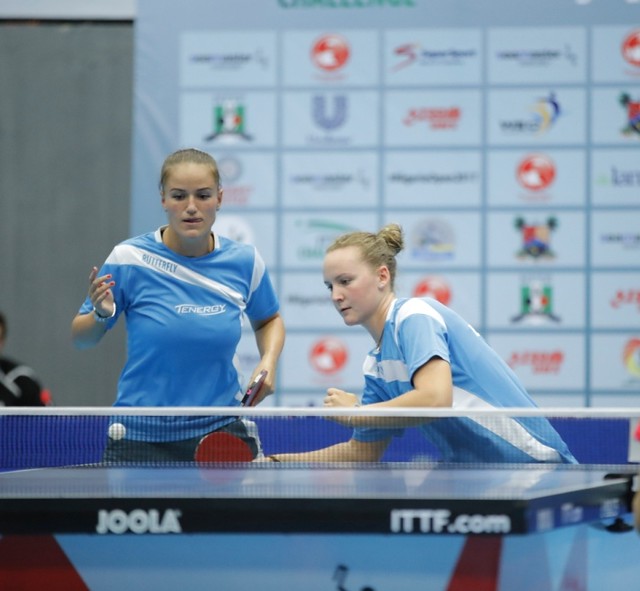by Ian Marshall, ITTF Publications Editor
Required to compete in the qualification tournament, the trail of devastation continued as he withstood a brave attempted recovery by Bode Abiodun, the no.9 seed, before emerging successful.
Sarthak Gandhi won the first three games, lost the next three before bringing mind, body and soul together to clinch the decisive seventh (11-8, 11-5, 11-9, 6-11, 2-11, 4-11, 11-4).
Defeat for Bode Abiodun but it was the best performance of his career on either the ITTF World Tour or ITTF Challenge Series; his previous best was at last year’s 2017 ITTF World Tour Nigeria Open when at the quarter-final stage he had lost to Finland’s Benedek Olah, the eventual champion.
Is that a good omen for Sarthak Gandhi?
Meanwhile, for Sarthak Gandhi, it is the only time that he has ever reached the first round of such a tournament, let alone progressed beyond the opening round. At the 2016 ITTF World Tour in Belarus, he negotiated the Men’s Singles qualification stage but advanced no further.
Success for Sarthak Gandhi against expectations; in the counterpart semi-final, it was according to expectations. Egypt’s Omar Assar, the no.2 seed, accounted for Hungary’s Marton Szita, the no.13 seed (11-7, 11-8, 9-11, 11-6, 14-12).
Similarly for Marton Szita it was totally new territory; only twice in his career has he reached the main draw of an ITTF World Tour or ITTF Challenge Series tournament; in 2012 in Zagreb he advanced to round two, last year in Hungary he negotiated the qualification stage but experienced a first round defeat.
Conversely Omar Assar is no stranger to semi-finals and finals; in 2014 and 2015 he appeared in the penultimate round in Lagos. On both occasions he progressed to win the title.
Is that a good omen for Omar Assar?






